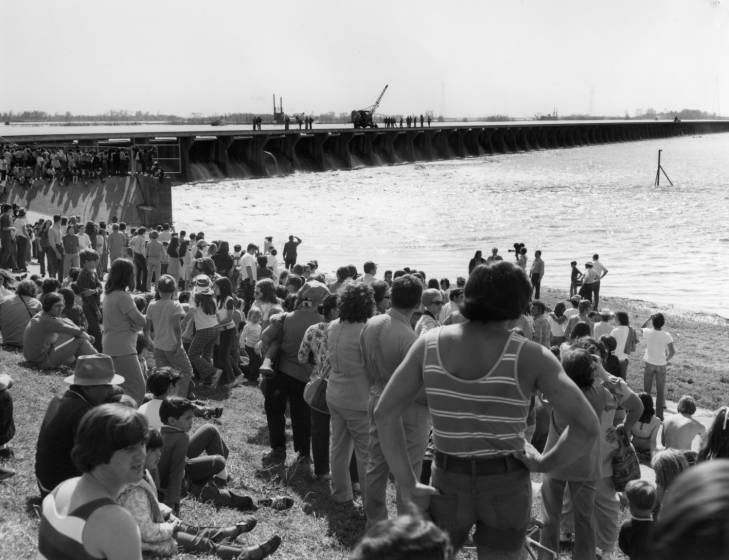Coronavirus is only one of the disasters affecting Gulf of Mexico fisheries. In 2019 the Bonnet Carré Spillway released an unprecedented amount of nutrient laden fresh water into the rich nearshore fishing grounds of Louisiana, Mississippi, and Alabama.
Located near Norco, Louisiana, at the south end of Lake Pontchartrain, the spillway was completed in 1973, and was designed to release water from the Mississippi River into Mississippi Sound.
But when the spillway opened for a record 123 days last year, almost twice the norm, it poured 1.35 trillion cubic feet of water into the sound and caused a catastrophe for local fishermen.
Oysters died outright and valuable species such as shrimp, crab and croaker either died or swam away.
On May 18, the Secretary of Commerce, Wilbur Ross, allocated $88 Million in Fishery Disaster Funding for Gulf fishing communities affected by 2019 spillway opening. About $58 million of that money will go to Louisiana.
“The Department of Commerce stands with our U.S. fishing communities, especially in times of hardship,” said Secretary of Commerce Wilbur Ross. “These funds will help industries and individuals recover from this disaster, and build resilience for the future.”
According to a NOAA press release, “funds can be used to address a range of impacts including impacts to commercial fishermen, recreational fishermen, charter businesses, subsistence users, processors, shore-side infrastructure, and the fishing ecosystem and environment. Activities that can be considered for funding include infrastructure projects, habitat restoration, state-run vessel and fishing permit buybacks, and job retraining.”
“We would have liked to see direct payments to fishermen,” says Louisiana shrimper, Lance Nacio, owner of Anna Marie Shrimp and member of the Slow Fish movement. “But if we can get better set up, that’s a step in the right direction.”
In addition to these funds, the Trump administration has signed into law other federal financial assistance programs, including several programs overseen by the Small Business Administration and U.S. Department of Agriculture that can provide some direct payment to some fishermen and related businesses.







